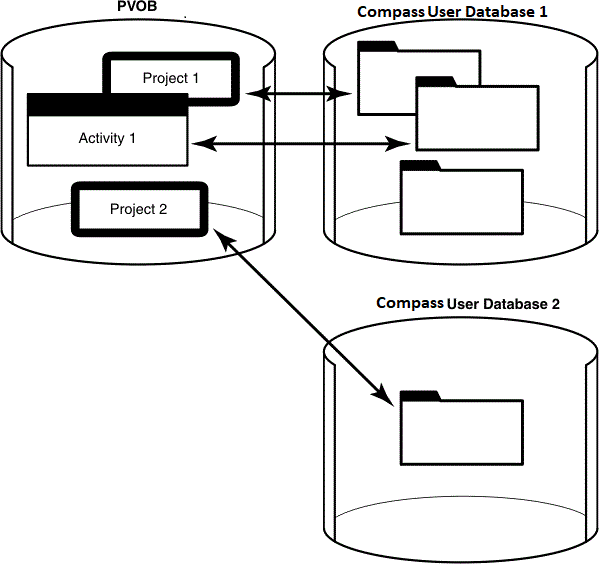Associating UCM and HCL Compass objects

The links between the project and activity objects in the PVOB and the record objects in the HCL Compass user database show the bidirectional linking of these objects. When you enable a project to link to an HCL Compass user database, the integration stores a reference to that database in the project’s PVOB. Every project that is enabled for HCL Compass is linked to a project record of record type UCM_Project in the HCL Compass user database.
Every activity in a project that is enabled for HCL Compass is linked to a record in the database. An activity’s headline is linked to the headline field in its corresponding HCL Compass record. If you change an activity’s headline in an HCL VersionVault repository, the integration changes the headline in the HCL Compass user database to match the new headline, and the reverse is also true. Similar to the linking of the activity headline, an activity’s ID is linked to the ID field in its HCL Compass record.
It is possible for an HCL Compass user database to contain some records that are linked to activities and some records that are not linked. In the figure, Compass User Database 1 contains a record that is not linked to an activity. You might encounter this situation if you have an HCL Compass user database in place before you adopt UCM. As you create activities, the integration creates corresponding HCL Compass records. However, any records that existed in that user database before you enabled it to work with UCM remain unlinked. In addition, UCM does not link a record to an activity until a developer sets work to that record.